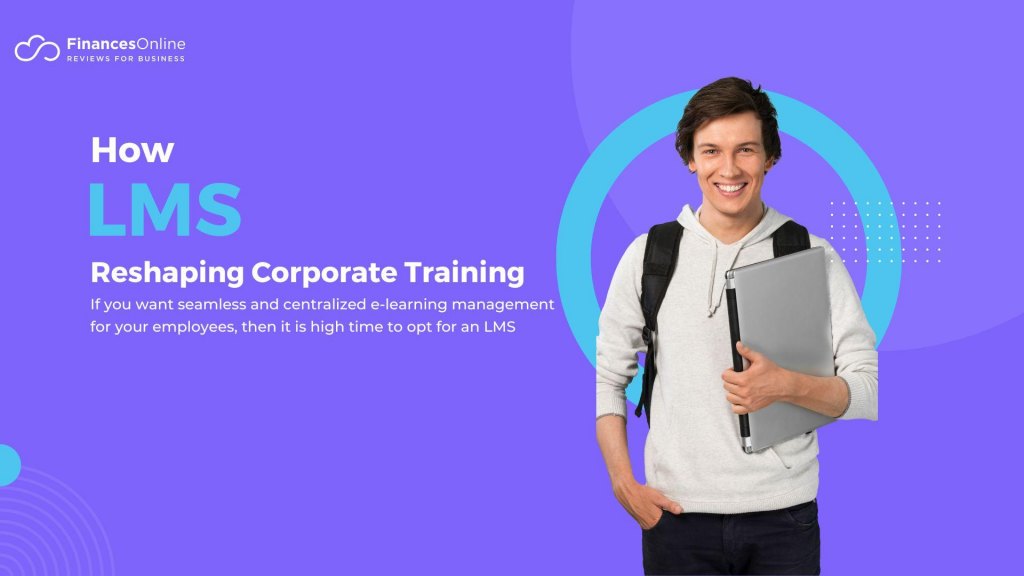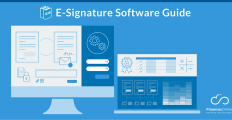At present, the modes of learning and teaching have changed. Also, the recently passed episode of the pandemic has made eLearning a new trend for both students and businesses that need to train and tute their students and employees respectively. Worldwide, people register for MIT courses on edX and Oxford courses on Coursera. These are online learning platforms that offer subscriptions for courses.
Many businesses are also using such online learning platforms to train their teams that are remote and located far from the company headquarters. They conduct training sessions and complete courses to improve the knowledge bank and skillset of their employees. This continuous learning of employees is important for companies so that they can cope with the changes in the corporate sector.
For instance, SaaS companies or any other business hire interns. These interns have zero experience but are full of energy and vigor to learn. Including SaaS enterprises, all businesses aim to harness their energies for the benefit of their business. However, it is not possible unless these young resources are taught how to work in professional environments. Also, many companies outsource services from regions where they get skilled people.
Today, many Asian countries are considered the hub of outsourcing services. However, when it comes to the training and learning of newbies, eLearning platforms become a need of the hour.
So, without wasting time, we will take you to how the learning management system (LMS) plays a role in the success of businesses.

Centralized Training Management
The LMS platform enables businesses and enterprises to manage all eLearning subscription management activities from a single platform. Here you can do the following tasks:
1. Course Creation & Management
From LMS, you can create a course and the course outline. The user is able to upload videos, presentations, and even lessons. Thereby, even if some of the program participants fail to attend the session, they can still track the activity that was conducted. The entire learning path can be set while using the LMS.
2. Employee Enrollment
Administrators can add or import learners into the LMS and assign them to specific courses or learning programs. This ensures that employees or learners have access to the relevant training materials and activities.
3. Progress Tracking
It is also important to track the progress of all employees who are part of the training or learning program. Even if the nature of the training program demands, the user can score all participants and send their reports accordingly.
4. Integrations & Automation
The LMS platforms can also integrate with third-party software and applications. So, if you need to automate any other process in your learning or training program for employees, then you can do that. All that you need is to integrate the right tech platform with your learning management system.
5. Continuous Learning & Updates
Organizations can offer continuing possibilities for training and development thanks to the LMS. The LMS can be expanded with new content as needed to give staff members access to the most recent knowledge and abilities.
Onboarding and Employee Orientation
An LMS (Learning Management System) greatly assists in onboarding and employee orientation by providing a centralized platform for training materials, resources, and information. It allows for standardized onboarding programs, self-paced learning, and multimedia content delivery, making the process engaging and flexible. The LMS enables tracking and progress monitoring, assessments, and certifications, ensuring effective training and evaluation. Additionally, it offers a resource library for just-in-time support, empowering employees throughout their onboarding journey and fostering continuous learning.

Customized Learning Programs
Today, there is diversity in the nature of businesses in the market. Therefore, LMS allows businesses to customize their training sessions or learning courses as per their businesses. Companies need to customize training and learning programs because there are varying and diverse departments and sections in a company. All these departments have their own needs that a single set learning program cannot fulfill.
For example, if you are crafting a training program for a team of programmers, then its needs will be entirely different from the program that is designed for the marketing team. However, LMS support customization to allow diverse users to cater to their various departments.
Interactive Learning Experience
A Learning Management System facilitates interactive learning because it integrates with the required software and applications. So, whether you need to conduct a training session or a presentation, it can all be done seamlessly. Secondly, almost all LMS have interactive boards for discussions and conversations with other team members. So, LMS is equipped to make your conversations and training sessions interactive with employees who are miles apart from your head office.
Thirdly, many LMS platforms offer gamification features, such as badges, points, or leaderboards, to create a sense of competition and motivation among learners. Also, there are options for virtual classrooms and webinars that companies can opt for learning programs for their employees.
Multilingual and Global Training
Now that multinationals outsource services from across the globe, they need tools and applications that the users can use in their native languages. So, learning management systems are developed considering this factor. LMS allows users to deliver training, and conduct seminars and webinars in different languages so that employees and new interns or workers can be trained accordingly.
Moreover, LMS help in managing and delivering global training by providing a centralized platform for content distribution. Organizations can create and store training materials in the LMS, ensuring consistent and standardized delivery across different locations. LMS also offers features like user management, where administrators can assign courses to specific learner groups based on their language preferences or geographic location. This ensures that learners receive relevant and targeted training content, catering to their specific needs.
Other than that, through LMS, all participants of a learning program or a training session can access the material and shared docs easily. This facility enables businesses to outreach their diverse and scattered workforce as and when required. Thereby, LMS provides everything that a business might need for online training and the support of its teams.
Certifications and Compliance Tracking
Today, in the corporate sector, not only degrees but certifications are also important for employees. Even some enterprises prefer hiring people who are equipped with certain certifications that they think are necessary for their business. Considering this fact, LMS platforms are now offering certification management. Even if needed, you can conduct the examination and evaluate it. LMS also supports the management of recertification processes by automating the tracking of certification expiration dates. When certifications are due for renewal, learners can be automatically notified and guided through the recertification process. This ensures ongoing compliance and helps organizations maintain the necessary certifications and regulatory requirements over time.
If you also want to manage the training of your employees with a learning management system, then opt for SubscriptionFlow. It allows businesses to manage subscriptions for their training. Even if you want, the system is flexible enough to integrate with other platforms. Also, for seamless payment management, you can get the top payment gateway integrations with your course subscription management platform. From course subscription management to tracking and reporting, you can do everything here.























Leave a comment!